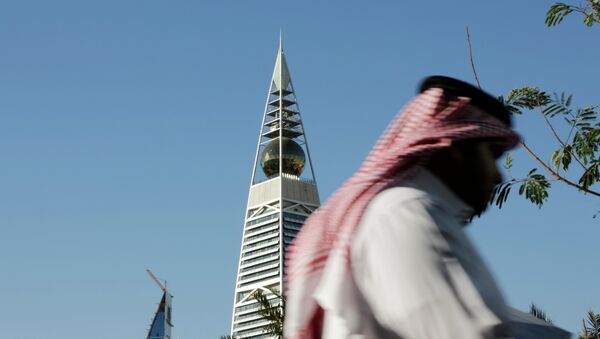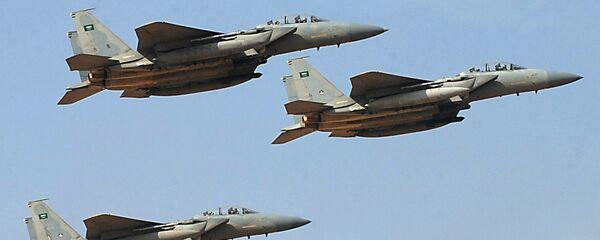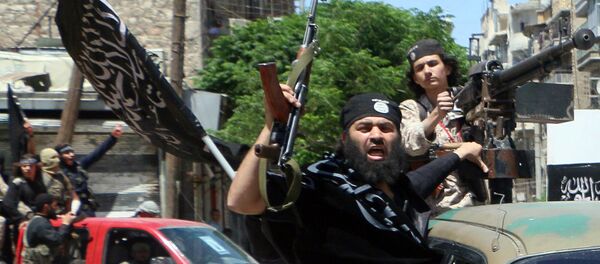A classified 2009 US diplomatic cable published by WikiLeaks reveals that "while the Kingdom of Saudi Arabia (KSA) takes the threat of terrorism within Saudi Arabia seriously, it has been an ongoing challenge to persuade Saudi officials to treat terrorist financing emanating from Saudi Arabia as a strategic priority."
"Still, donors in Saudi Arabia constitute the most significant source of funding to Sunni terrorist groups worldwide… Saudi Arabia remains a critical financial support base for al-Qaeda, the Taliban, LeT [Lashkar-e-Taiba], and other terrorist groups, including Hamas, which probably raise millions of dollars annually from Saudi sources, often during Hajj and Ramadan," the cable reads.
As The Washington Post reported in November 2015, Daesh purportedly received up to $40 million from private donors in Saudi Arabia, Qatar, Kuwait and the United Arab Emirates.
There is yet another problem: Saudi Wahhabi preachers have been repeatedly spotted radicalizing European youths.
"Increasingly, voices have been raised against Saudi Arabia and the spreading of Wahhabi fundamentalism through the Saudi-run Great mosque of Brussels and the Centre Islamique de Belgique (CIB) of Molenbeek, where many young criminals were recruited for making the trip to Syria," French journalist and founder of Agora Erasmus, the Belgian LaRouche movement, Karel Vereycken told Sputnik in March 2016.
It is not the first time that the Saudis have weaponized radical Islamism, according to Dr. Abbas Kadhim, a senior fellow at the Foreign Policy Institute, SAIS, Johns Hopkins University.
Kadhim offers to look back into the history of KSA founder Abdulaziz Ibn Saud's quest for power.
"Since the appearance of the self-described Islamic State-formerly the Islamic State in Iraq and the Levant (ISIL)-many analysts tried to trace its political, historical, and ideological genesis," Kadhim notes in his article for The National Interest drawing historic parallels between Daesh and the Saudi Ikhwan terrorist group that "tormented large populations in the Middle East between 1912-1930."
The crux of the matter is that the Ikhwan was created by Ibn Saud (1875-1953) to subdue the Arabian Peninsula, the scholar points out.
Ibn Saud recruited the Bedouins of Arabia which were subjected to "rigorous religious education" in accordance with the teachings of Muhammad ibn Abd Al-Wahhab, founder of the radical Wahhabi school.
"The Ikhwan became Ibn Saud's merciless army that went with him on a rampage throughout Arabia to fight the 'unbelievers,' meaning all Muslim groups that believed in non-Wahhabi interpretations of Islam," Kadhim narrates.
Remarkably, the Ikhwan had finally turned against their patron, Ibn Saud, who tried to limit their activities after ascending to the throne.
"Like their ancestor, the current Saudi Monarchy found in the cruel terrorists of ISIL [Daesh] very useful tools to weaken their enemies (former Iraqi prime minister Nouri Al-Maliki and Syrian president Bashar Al-Assad)," Kadhim points out, adding that the argument that Riyadh fights terrorism and is a target of terrorists "does not negate" his narrative.
"While the Saudi Kingdom does fight terrorism on its soil, its foreign-policy behavior moves in the opposite direction," he stresses, referring to Saudi private donors' practice to fund radical Islamists worldwide.
"Now, one century down the line, the resurrection of the Saudi Ikhwan in the form of ISIL [Daesh] is by no means alien to Saudi policies of temporarily favoring a combination of Wahhabi religious ideology and the militant propensities of dispossessed Muslims as proxies against their regional rivals," Kadhim underscores.
The disturbing double-edged Saudi strategy is likely to backlash against Riyadh.
So far, the publication of declassified 28-pages from a 2002 congressional report on the 9/11 attacks have recently added fuel to the fire as it shed light on indirect links between an alleged al-Qaeda recruit Abu Zubaydah and former Saudi Ambassador to the United States Prince Bandar bin Sultan.






